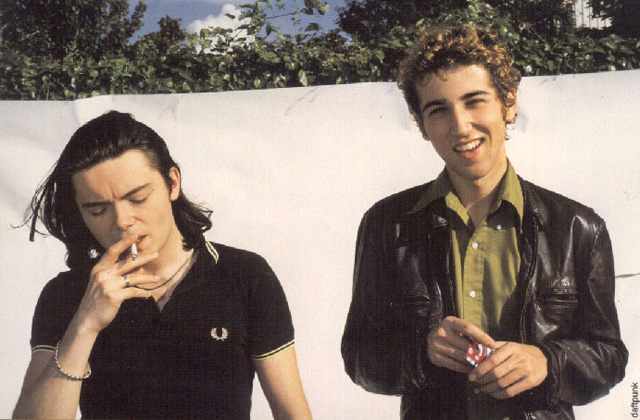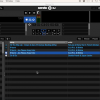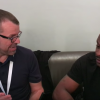How To Create The Press Kit That Will Win You Gigs
 So, you want to be a DJ. Better yet, you want to get hired to play gigs. Apart from practicing your DJ skills and networking, there’s one more thing that is absolutely vital if you want to DJ professionally – the press kit.
So, you want to be a DJ. Better yet, you want to get hired to play gigs. Apart from practicing your DJ skills and networking, there’s one more thing that is absolutely vital if you want to DJ professionally – the press kit.
Despite its name, this kit is for much more than the press. Don’t discount the media, though. Once you’ve put a kit together, you should by all means contact local radio stations and DJ-focused websites and magazines. Pitch a story to them about something you do particularly well or some knowledge that you’ve gained that would be helpful to their listeners or readers. Once you’ve hooked them with your idea, they’ll want to know more about you. That’s when you can present them with your press kit.
the press kit … deconstructed
You know that moment of angst we all have where you try to figure out who you are and why you’re here? The press kit, in a nutshell, holds the answers. Through its various parts, the information contained in the kit tells the story of who you are as a DJ. Before you put fingers to the keyboard, you really need to take some time to work out what that story is. What image do you want to put across? This synopsis is called the elevator pitch. If you only had a minute or two of someone’s time, what would you say about yourself that would catch their interest and make them want to know more about you? That task alone is probably the most difficult part of creating your kit.
There are companies that will do all this work for you for a price, of course. But with so many desktop publishing tools available to almost everyone now, making your own press kit is relatively easy. One word of caution, though: if you do decide to do it yourself, you will still need a second pair of eyes to check out what you’ve written before you send it off to anyone important. Hire a professional writer who has experience writing bios or résumés to proofread it. Think of your press kit as if it’s a résumé. It needs to be authentic; it must demonstrate what makes you stand out, and it needs to be kept up-to-date.
Every press kit should contain these elements:
Your Biography
Whatever you do, do not launch into a retelling of how you discovered that you were born to DJ at your 5th birthday party. I know it’s hard to believe, but that’s not what would inspire anyone to hire you. Focus on the facts (and no embellishments, please!). Mention who you are, where you’re from, and what you do.
Similar to this: John Doe lives in Garden Grove, California and is a Producer, DJ, and Event Organizer.
Your Sound
Describe your sound using popular keywords. Like this: DJ John Doe blends elements of House, Latin, Jazz, and Rock that are guaranteed to get the crowd dancing.
Your Career
This part is really just a thumbnail synopsis of other DJs you’ve collaborated or performed with. Stick to listing three to five names. If you haven’t worked with anyone, leave this part out. This section is also where you should list three to five of your residencies and any other DJ work history.
Your Releases
Have you produced any mixtapes and soundbites? Or have you recorded your gigs? Any audio and video that shows potential clients what you can do should be saved to SoundCloud, YouTube, or any other hosting website. List the links to the latest three to five recordings you’ve made. Also include download statistics, if possible. If you don’t have any of your music saved somewhere, you should really get to work creating some. Your business is music; words will only go so far in describing it. Get something recorded so your potential clients can hear what you sound like.
Your Contact Info
You can place your contact information along the bottom of each page or the top. It doesn’t really matter where it goes as long as it’s on every page and is visible. Try to provide as many ways of contact as possible. People prefer different contact methods; make it easy for them.
At the very least, make sure you include your mailing address, email address, phone number and website.
Your Links
Website, YouTube, MySpace, SoundCloud … as I’ve already mentioned, your business is music. So, if you don’t already have a YouTube channel (and any other channel that showcases your skills) create one soon. YouTube is a great one for promoting your performances, either private or from the gigs you’ve worked. No client will ever have to wonder whether you can engage the crowd if you show them that you can do it via video.
As a professional, clients really do expect you to be active on social media; so, list those properties, too. Facebook, Twitter and all the rest function as excellent promotional tools. But, they also provide a client with a perception of who you are as a person and as a DJ. Make sure you keep your social media activity current and professional.
Your Image
Every press kit needs photos. An image can tell your potential client a lot about you, like whether you’re creative, reclusive, unsure of yourself … you name it. Hire a professional photographer to take photos for your kit. If you’ve got room in your budget, hire a fashion consultant to help you choose clothes that project the kind of DJ you are. We’re told that we shouldn’t judge people by how they look, but you know we always do. Make sure your photos reflect the DJ you want your clients to see. Beyond that there are some technical tips to remember. The images, both digital and hardcopy, should be high-resolution (300dpi) because they can be easily re-sized for both print and websites. If you decide to include some photos that were taken by friends at one of your gigs, make sure that the photos you choose were taken in landscape mode.
Your References
Even if you’ve ticked off all the boxes, and you’ve got lots of great examples of your performances, clients may still ask for references. Go ahead and provide them. But, remember to ask permission first! Don’t assume that someone wants to be a reference for you just because they know you. Make sure to let them know when they might receive a call and from whom. I would hesitate before providing a reference’s full contact information in the press kit, though. Instead, I’d recommend writing a sentence indicating that you will provide full contact information upon request.
what’s next?
Create your press kit in both digital and hardcopy formats. (Digital copies should be saved as a .zip file since they will be quite large.) Both will be useful depending on your intended target.
Now that you’ve put your press kit together, you’ve had it proofread, and it’s looking great, you can start networking. Try to connect over the phone or in person with whoever is in charge of hiring. Tell that person that you will send her your press kit, and make sure you address the package to her.
final word
A press kit doesn’t exist in a vacuum and neither do you. Potential clients will Google your name to determine whether or not they should hire you. I can’t stress enough that your reputation needs to be clean and in line with whatever image you want to put across. There’s no point marketing yourself as a DJ who can play at sports stadium events if your digital footprint is loaded with insults you’ve hurled at players, coaches or team executives. Instead, fill your social media interactions with thoughtful comments that showcase your unique personality.
Over to you: Have you created a press kit? How is it working for you?










